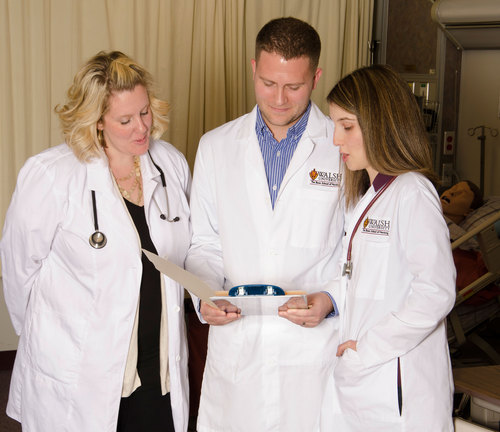As part of Walsh University's Master of Science in Nursing program, the Adult Gerontology Acute Care Nurse Practitioner Certificate (AGACNP) track meets the health care needs of the acutely ill person by providing the following services, in congruence with the AGACNP competencies established by the American Association of Critical-Care Nurses (AACN).
 Program Objectives
Program Objectives
- Demonstrate competent and safe care of the acutely ill adult gerontology patient and population, ranging from health promotion to disease prevention, to maintenance and stabilization of complex acute and chronic conditions.
- Synthesize theoretical, scientific, and evidence-based clinical knowledge for the assessment and management of adult and aging patients with acute, chronic, and critical conditions.
- Analyze situations to improve quality of care through consultations and collaborations with other professionals.
- Demonstrate leadership skills through a commitment to the implementation, preservation, and evolution of the adult-gerontology acute care nurse practitioner role and advocate for health policies that positively affect APRN practice.
- Provide culturally competent care with respect to cultural and spiritual beliefs and make health care resources available to patients from diverse cultures.
Who should consider the Adult Gerontology Acute Care Nurse Practitioner Certificate (AGACNP)?
- Post-master’s nurses with clinical expertise who are seeking a specialization in acute care.
- Master’s students within any other track of Walsh’s Master’s Nursing program.
- Nurses who are DNP or PhD graduates or students who wish to gain expertise as an AGACNP.
What makes Walsh's Nursing Education Certificate Program unique?
- Access to excellent faculty with real-world experience
- Opportunity to obtain the certificate within one calendar year
- Interprofessional venues with state of the art teaching modalities including simulation and active learning lab experience
- Opportunity to participate in a global experience through the Byers School of Nursing while enrolled in the certificate program
*Online refers to the definition from the Higher Learning Commission: Distance-delivered courses are those in which all or the vast majority (typically 75% or more) of the instruction and interaction occurs via electronic communication, correspondence, or equivalent mechanisms, with the faculty and students physically separated from each other
